All rights reserved. Copyright © 2019 Renegade University
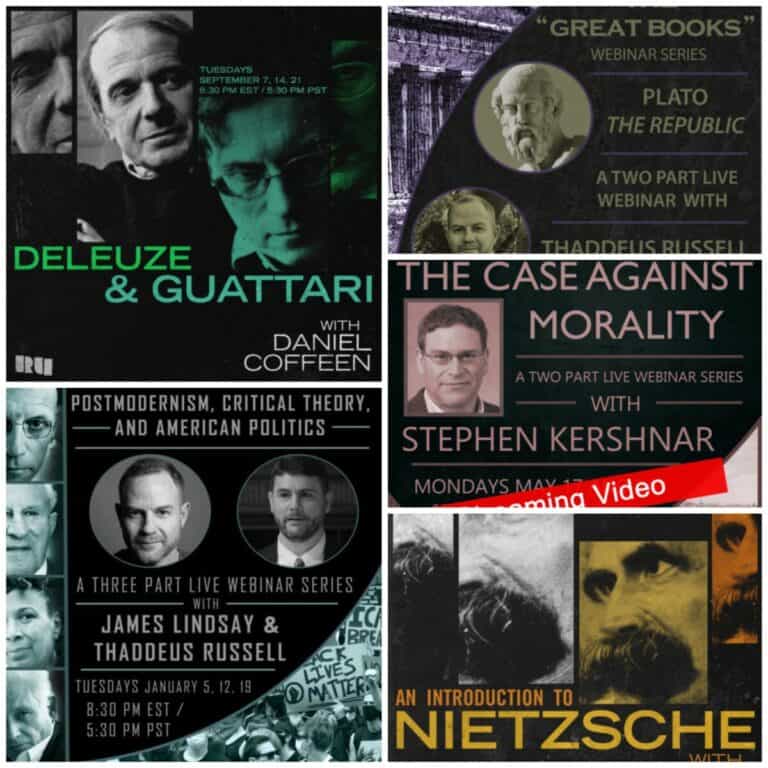
Philosophy Bundle
In the RU Philosophy Bundle you’ll get access to a collection of popular RU courses on philosophy and philosophers. You’ll learn Plato’s Republic, a crash course on Postmodernism, a deep dive into the thought of Friedrich Nietzsche, Gilles Deleuze, and Félix Guattari, and even learn why the idea of morality might just be nonsense.
$490.00
Included in This Bundle
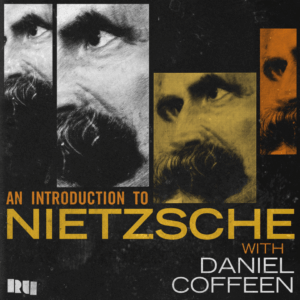
An Introduction to Nietzsche
Daniel Coffeen guides learners through an examination of Nietzsche’s policy and politics of joy, radical life affirmation, and what it means to live outside of morality – with relentless ethics.
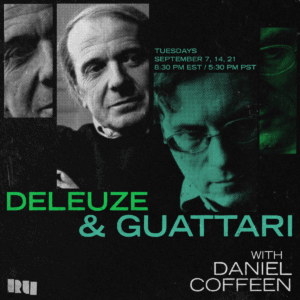
Deleuze and Guattari
In this course, you’ll learn how to read Deleuze and Guattari (and why they write the way they write) and the worlds they create. You’ll dig into some of their beautiful concepts, figures, and operations such as difference in itself (haecceity), repetition, the rhizome, becoming-x, a Body without Organs (BwO), schizoanalysis, immanence, assemblages, lines of flight, territorialization (as well as re- and deterritorialization), and others. It’ll be a wild ride as you’ll be nudged to think in ways you’ve never even imagined existed.
The course focuses on passages from Deleuze’s “Difference & Repetition” as well as Deleuze & Guattari’s “A Thousand Plateaus” and “What is Philosophy?”
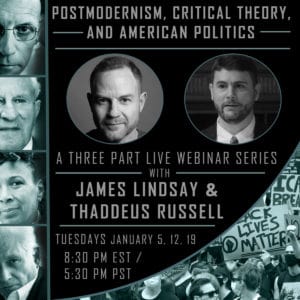
Postmodernism & Critical Theory
Are “critical theory” and postmodernism the sources of authoritarian “social justice” and “identity” politics emanating from college campuses? Do the ideas of “critical theorists” like Herbert Marcuse and Kimberlé Crenshaw and postmodernist philosophers like Michel Foucault and Jacques Derrida constitute a threat to political freedom or are they consistent with the ethic of personal liberty? Are these ideas deeply held and well-intentioned beliefs or just “cynical theories” intended to undermine every aspect of society and institute repressive rule?
This course is unique among university courses in that it is co-taught by two scholars of critical theory and postmodernism who are on opposite sides of many of these questions. This course is not only a three-session discussion, but also a civil, respectful debate involving the instructors and participants.
By examining the texts associated with the notorious schools of thought, we will all deepen our understanding of ideas that both instructors agree have shaped the discourse in mainstream American media and politics.
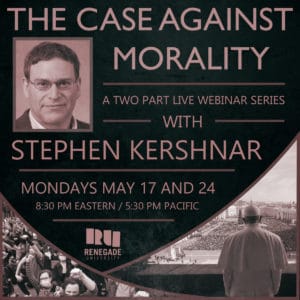
The Case Against Morality
Moral responsibility and morality lie at the heart of how we view the world. In our daily life, we feel responsibility-related emotions: gratitude, pride, love, forgiveness, resentment, indignation, and shame. We love those who freely and reciprocally love us. Also, we feel that people act rightly or wrongly, make the world better or worse, and are virtuous or vicious. These policies are central to our justifying how we see the world and treat others.
Taught by the renowned philosopher Stephen Kershnar, a distinguished teaching professor and chair of the Philosophy department at the State University of New York at Fredonia, this course will present and examine the argument that our views on these matters, except love, are false.
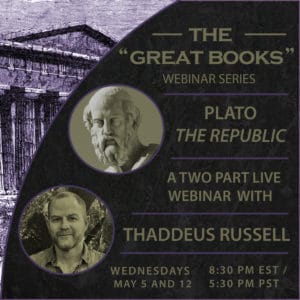
The Great Books: Plato, The Republic
No text other than the Bible has been as influential in the history of Western civilization as Plato’s The Republic. Written around 380 BC, The Republic raises and offers answers to all the major questions that still occupy philosophers and political theorists. Readers new to the text are often amazed at how much of their culture they see being created in the series of dialogues between the character of Socrates and his interlocuters. Anyone raised in the West will recognize in the text many of the central precepts of their world.
The Republic addresses the meaning of justice, the characteristics of a good society, the proper relationship between the individual and the community, the problems with democracy, the function of art, the consequences of greed, the best education for each class of person, the basis of morality, and the very nature of truth.
$490.00
